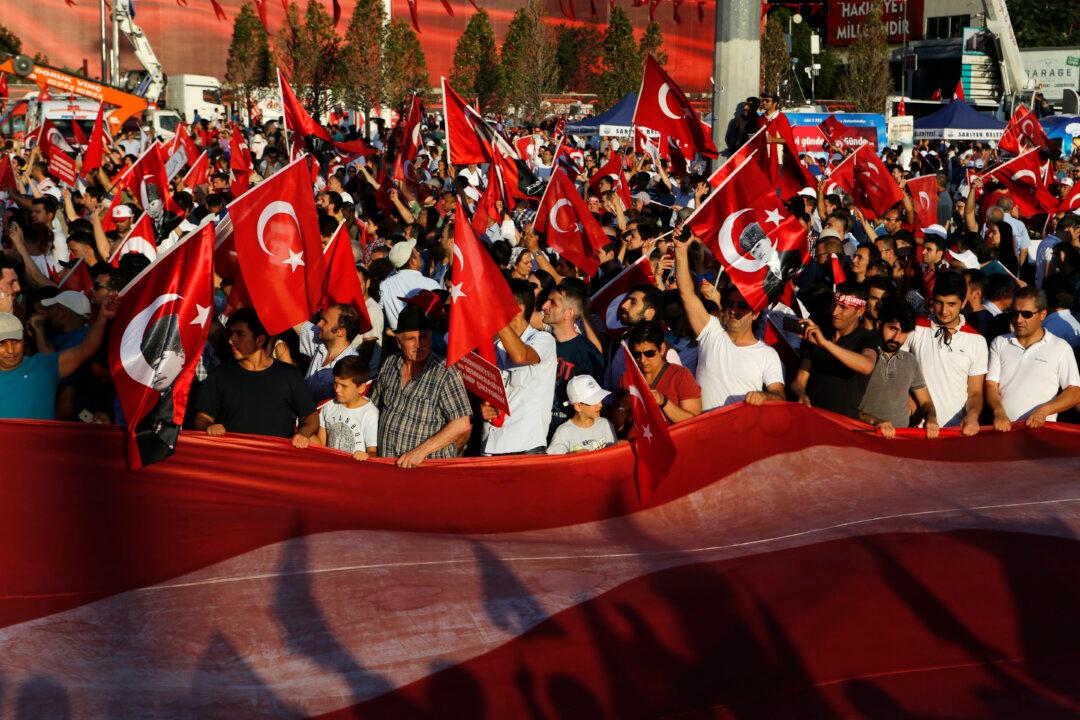ISTANBUL—Turkey was riding high in 2010, casting its brand of Islamic piety, Western-style democracy and economic growth as a regional model amid popular upheavals in the Mideast and North Africa.
Six years later, it is mired in tension with neighbors and allies, dominated by a president seeking to increase his constitutional powers and now enmeshed in a purge of large sectors of society after an uprising by renegade military officers.
The changes that led to this turn in Turkey’s fortunes include internal rifts—the collapse of a Kurdish peace process and the alleged erosion of democratic rights under President Recep Tayyip Erdogan are among them—as well as the war in Syria and other regional chaos in which Turkey has taken sides.
Erdogan is also sparring with the United States, a NATO ally, over his demand that Washington extradite Fethullah Gulen, the U.S.-based Muslim cleric Turkey accuses of orchestrating the July 15 coup attempt.
And on Aug. 9, the Turkish president is scheduled to meet Russian leader Vladimir Putin in an effort to repair strained ties following Turkey’s apology for shooting down a Russian fighter jet last year. The breach has cost Turkey an important source of tourists, and stalled energy deals.
Turkey’s trajectory in the past decade represents the struggle of a strategically located nation, spanning the Asian and European continents, to shine on an international stage. Now, after the failed uprising, the government is trying to rid the military, judiciary and other institutions of suspected Gulen supporters.
Nearly 16,000 people were detained for questioning over suspected links to the coup attempt, and about half were arrested to face trial, Interior Minister Efkan Ala said.





